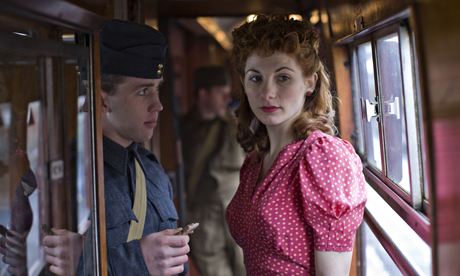
Today is International Conscientious Objectors' day, and the pacifist group Peace Pledge Union are holding their annual ceremony in London to mark the event. PPU has a fascinating and affecting archive of testimony from COs, but it occurred to me that conscientious objectors are underrepresented in the literature of war. There are many references to conscience: to soldiers who signed up but later doubted the rightness of the cause and to deserters, to those who were, by our standards, wrongly accused of cowardice. But references to actual conchies, as they were (not always affectionately) known, are thin on the ground.
Ford Madox Ford's tetralogy Parade's End, produced in the 1920s, has some mention of them.
'The son,' Tietjens said, 'is a conscientious objector. He's on a minesweeper. A bluejacket. His idea is that picking up mines is saving life, not taking it.'
This might not fit everyone's definition.
Historian and writer Lytton Strachey was famous for having faced down a tribunal to get conscientious objector status – and his reputation survived this. Strachey's biographer Michael Holroyd says the correct version of a famous anecdote is that he was asked: "What would you do if you saw a German soldier trying to rape your sister?" Strachey replied: "I would attempt to come … [significant pause] between them."
Robert Graves also tells this story in Goodbye to All That, a memoir of the war years – though one that was very much tidied up and lightly fictionalised, according to Paul Fussell in The Great War and Modern Memory. Graves had interesting thoughts about conscientious objectors: few soldiers, he wrote plainly, actually believed in the war or talked of patriotism, but they still had no time for COs. The fighting men in the trenches had a list of people they despised back in Great Britain, but that in a "carefully graded caste system of honour", the members of the government were disliked even more than COs.
Moving on to the second world war, the author, broadcaster and educator Edward Blishen, then in his 20s, was a conscientious objector, and worked on the land. His lovely 1972 memoir of the time, A Cack-Handed War, is charming, thought-provoking and deserves a place in the second world war annals, although it's now out of print. "I think it was my father's war that I refused to fight," he wrote. "Had I been two or three years older, I think I would not have been a pacifist."
In Sarah Waters' 2006 novel The Night Watch, Alec is determined not to fight and is asked if he will "register as a conchie". He replies: "That's as bad … having to stand in a room and say your piece, in front of all those strangers? Why should I have to do that? What's it to anyone else if I won't fight?'" Alec chooses a different way out.
In 2009, award-winning children's author David Almond wrote a story, titled Klaus Vogel and the Bad Lads, set in an unspecified time after world war two. In the story, published in an Amnesty International anthology, a gang of children are told by their leader that an adult who had been a "coward and a conchie" during the war deserves to be persecuted by them. It takes a German boy to stand up to the bully.
But this is a minor reference compared with the number of accounts of so many other wartime experiences. To consider the specific case of soldiers wrongly executed for cowardice, a moment's thought brings up Michael Morpurgo's Private Peaceful, Reginald Hill's The Wood Beyond and, from a French perspective, Sébastian Japrisot's A Very Long Engagement.
From Siegfried Sassoon and Wilfred Owen onwards, people have written about the horrors of war. But there is still a strange ambivalence about those who might be thought, by refusing to take part, to have seen the wrongness most clearly. In A Cack-Handed War, Blishen says that in the first world war COs "were martyrised: in [the second] they were put into positions of obscure discomfort". He also says he felt "the awful guilt of standing aside … but this isn't a story of ideal decisions taken with reference to purely disinterested perceptions. It's quite another – quite the usual sort of human story."
It would surely be good to hear more of that human story and to figure out why so little has been written about those "martyrised" and discomforted people.

